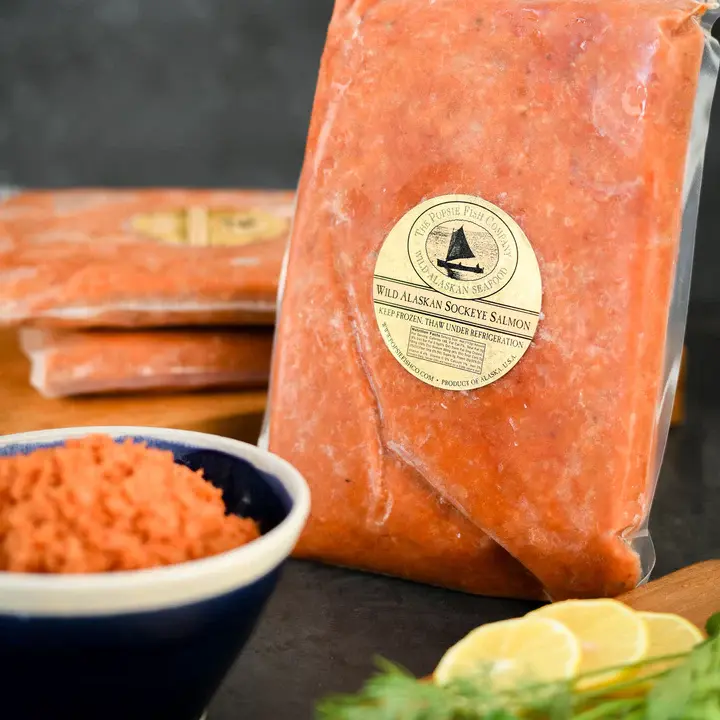
Mayhew's Market Shrimp
The shrimp that started it all! Our Seasonal Shrimp boasts unparalleled taste and texture, infused with flavor from the mineral-rich Atlantic waters in which they live. Stop settling for farmed shrimp found in the grocery store and switch to the wild option. And when we say wild, we also mean heads-on, which is key to unlocking the most optimal flavor. Don't let that dissuade you; a minute of "extra" work is what will set our shrimp experience apart from all the rest.
Treat yourself to the "King of Shrimp", Royal Red Shrimp. A deep sea shrimp very rich in flavor. A cross between shrimp and lobster or shrimp and scallops. Take a minute to read the page on "Royal Reds".

The Popsie Fish Company
Wild caught fish from the cold north Pacific waters of Bristol Bay Alaska.
Flavor, texture and a nutrient profile that only Mother Nature can provide!

Thawing Vacuum Packed Fish
To safely thaw vacuum packed fish or any vacuum packed meat, remove it from the vacuum package and place it in a covered container on the bottom shelf of the refrigerator for a slow thaw. For a quick thaw, remove it from the vacuum package and place it in a zip lock bag and place in a bowl of cold water. The introduction of air to the fish while it thaws inhibits the growth of any potential anaerobic bacteria such as Clostridium botulinum.












